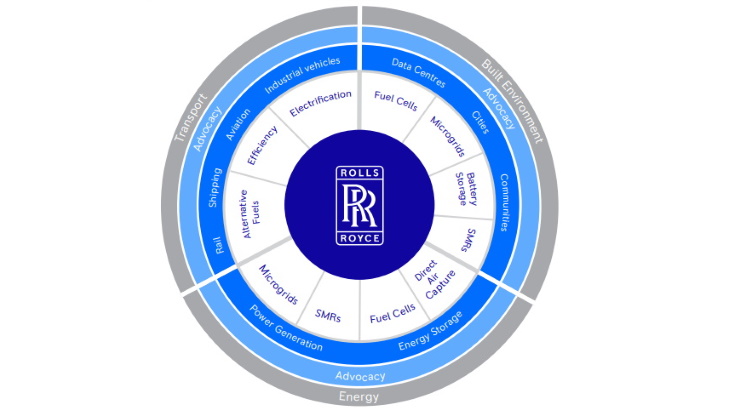Rolls-Royce will align its business and value chain to the Paris Agreement climate goal - to limit global temperature rise to 1.5°C - by using its technology to help decarbonise parts of the economy, including aviation, shipping, rail and power generation.
It has now announced plans to make all its new products compatible with net zero by 2030, and all its products in operation compatible by 2050. It is also boosting its research and development expenditure to pivot towards lower and net-zero carbon technologies, moving from about 50% of its gross R&D spending today to at least 75% by 2025. Last week, it published its technology pathway - Leading the Transition to Net Zero Carbon.
"There is no single solution to net zero and so we are innovating across multiple areas simultaneously," Rolls-Royce said. "However, the pace and prioritisation of technological solutions, as well as global consistency and collaboration in policy, will also be key to success. Consequently, we are expanding our collaboration with partners, industry leaders and governments across the three critical systems in which we operate - transport, energy and the built environment - to accelerate progress."
Small modular reactors
Rolls-Royce said its strategy includes the development and deployment of SMRs, which it says will play a vital role in supporting the decarbonisation of the energy grid and meeting increased demand for clean electricity. SMRs also have potential applications in the production of sustainable aviation fuels, hydrogen or other e-fuels, through the provision of low-cost, reliable and clean power. Nuclear power provides stability to electricity grids and, alongside renewables, will play an important role in the transition to a net-zero carbon economy, it said.
"Our innovation with small modular nuclear reactors will see us develop existing technology to enter new markets and sectors where we can offer technological solutions that can abate emissions outside our current footprint and provide further global growth opportunities," East said.
The Rolls-Royce led UK SMR consortium aims to build 16 SMRs, each with a generation capacity of 470 MWe. These could produce around 20% of the country's grid energy by 2050.
"We believe that as the world emerges from the COVID-19 pandemic and looks to build back better, global economic growth can be compatible with a net-zero carbon future, and that Rolls-Royce can help make that happen," East said.





_23009.jpg)
_33392.jpg)
_53504.jpg)







